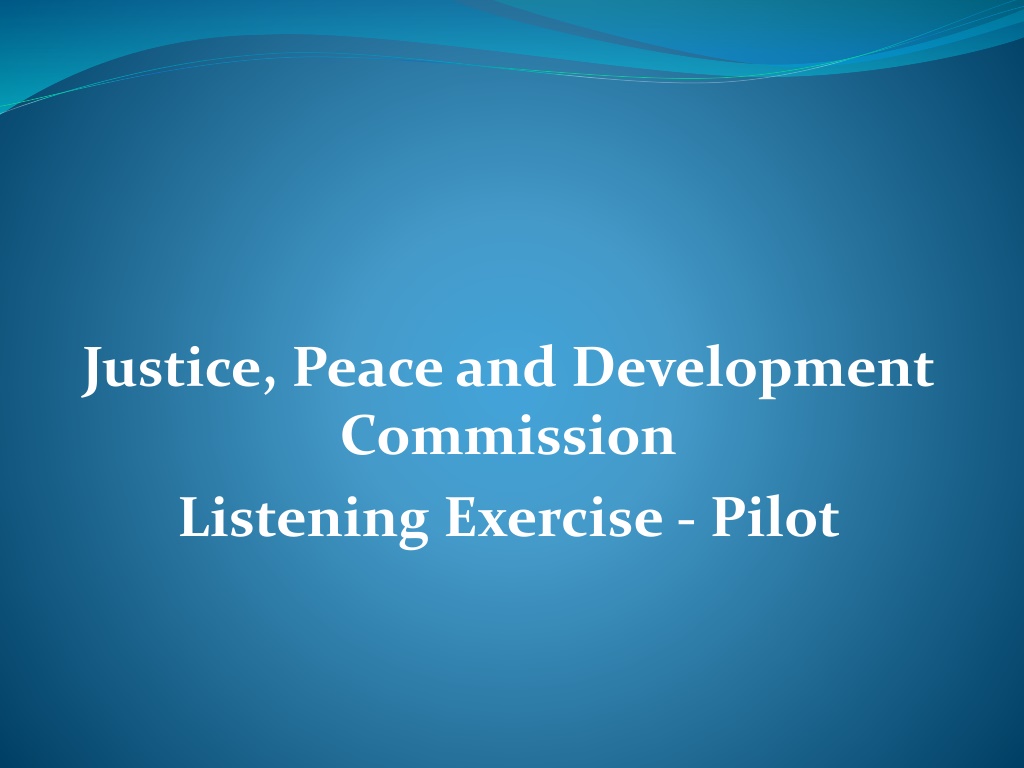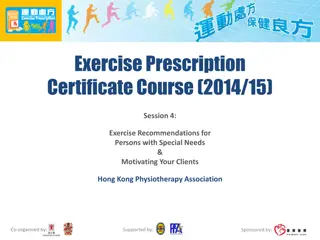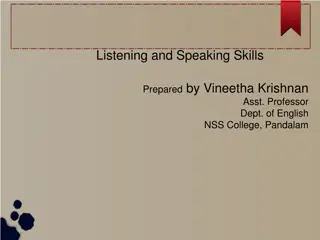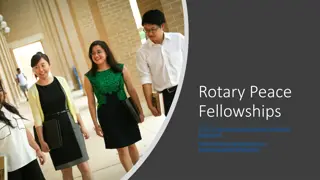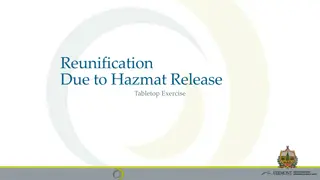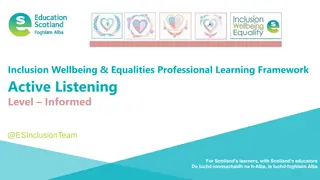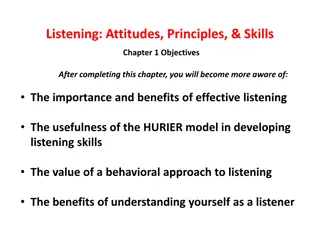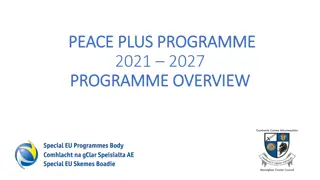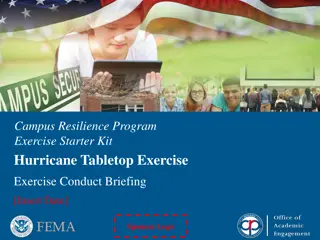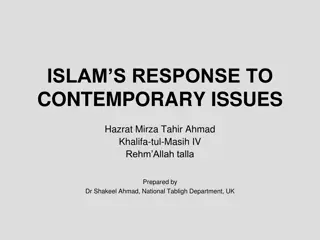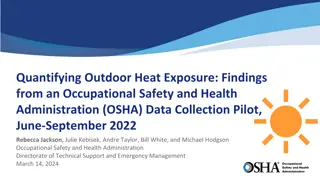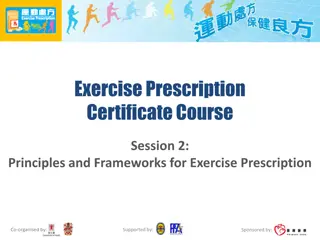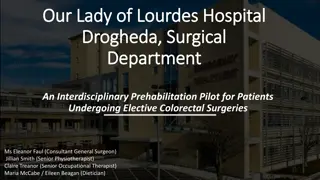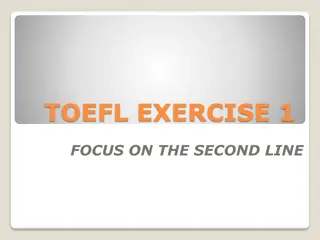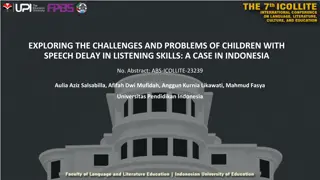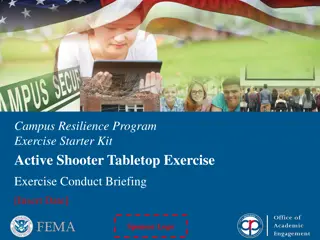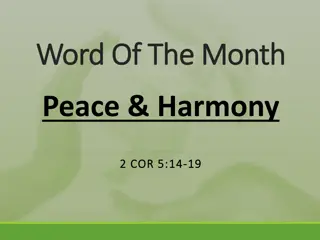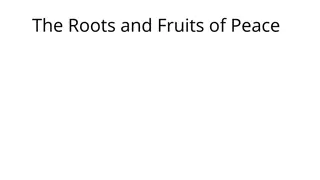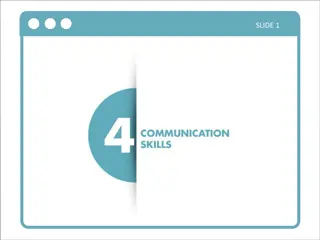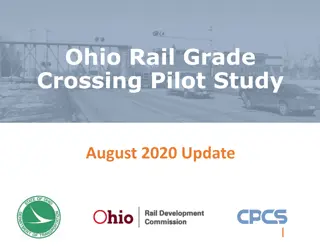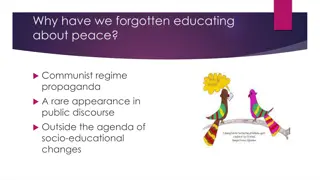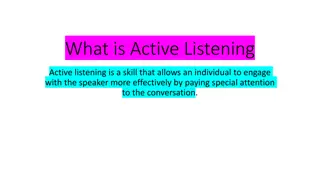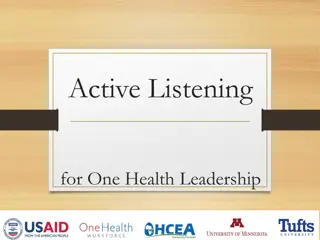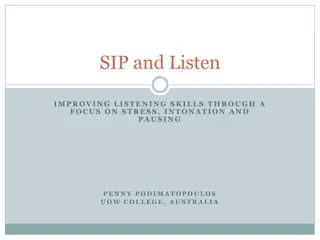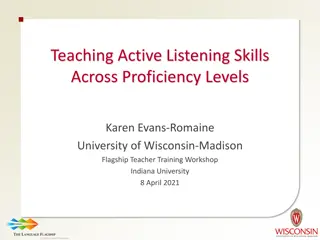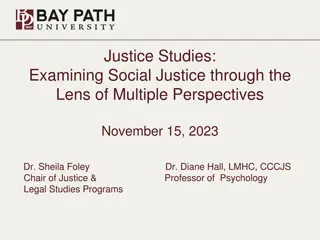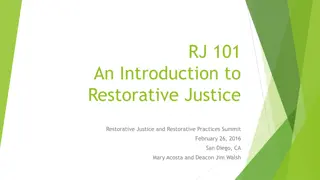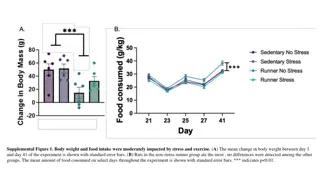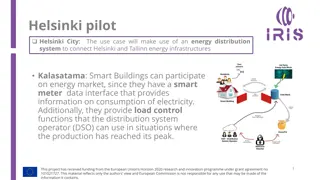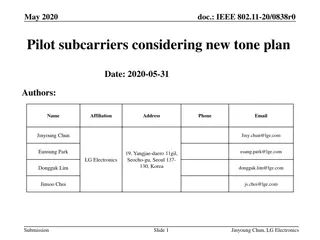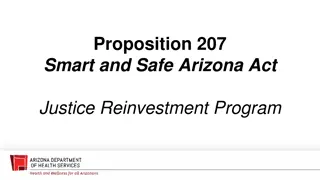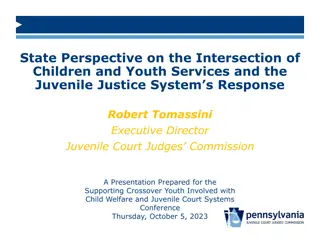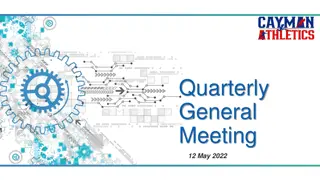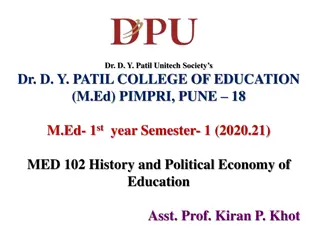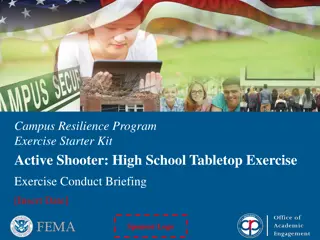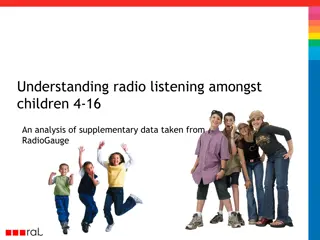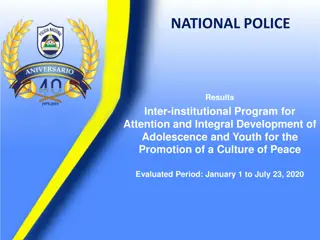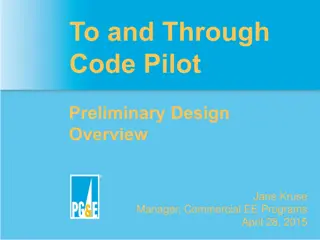Justice, Peace and Development Commission Listening Exercise - Pilot Program Findings
The Justice, Peace and Development Commission conducted a pilot program to engage marginalized individuals in Armagh and Louth. A response rate of 72% was achieved, indicating a desire for people to be listened to and valued. The profile of respondents and their relationship with the Church were also explored through questionnaires, shedding light on various perspectives and sentiments. Insights from the survey provide valuable feedback for moving forward towards justice, peace, and development initiatives.
Uploaded on Sep 24, 2024 | 0 Views
Download Presentation

Please find below an Image/Link to download the presentation.
The content on the website is provided AS IS for your information and personal use only. It may not be sold, licensed, or shared on other websites without obtaining consent from the author. Download presentation by click this link. If you encounter any issues during the download, it is possible that the publisher has removed the file from their server.
E N D
Presentation Transcript
Justice, Peace and Development Commission Listening Exercise - Pilot
Contents Background & Methodology 1. Questions and Answers 2. Interpretation of findings 3. Moving Forward 4.
1.Background and Methodology The pilot programme was initiated, developed and conducted by the Justice and Peace Commission. The purpose is to engage those who feel marginalised for whatever reason A questionnaire was developed by the Justice and Peace Commission 5 questions, 4 boxes for comments. Two areas were agreed: Armagh (urban) and Louth (rural)
Background and Methodology- Pilot Programme Volunteers recruited from each area, briefed and trained. Participated in exercise over 3/6 nights in September 13 Target was 150 responses from each area
Background - Response to the process 450 questionnaires were distributed, 322 were completed 72 % return rate - why so high? Desire to be listened to people felt valued Questionnaires were distributed, completed or collected within 24 hours
Profile of Respondents 322 completed questionnaires 131 were regular Mass goers(40%); 126 were irregular Mass goers (39%) and 39 (12%) never attend. 200 females (62%) and 122 males (38%) took part. 3 Age groups, 18-35 (90 ); 35-65 (187); 65+(45)
2. Questions and Answers 50% felt at home in the church 40% felt excluded, indifferent or irrelevant 10% felt valued by the Church 1. Which best describes your relationship with the Church? 70% of women gave a positive responses in this question while less than 50% of men felt positive about their relationship with the church
Relationship with the Church-comments 24 people felt the priest had an impact on their relationship with the Church difficult to approach; Mass boring ; priest out of touch 18 people felt the issue of clerical sexual abuse had affected their relationship with the Church 10 people felt Mass attendance was unnecessary or unhelpful in their faith life/relationship with God. 8 people felt there was nothing for young people.
Relationship with the Church Relationship with church 19% At Home Valued Excluded 16% 51% Irrelevant Indifferent 5% 10%
Questions and Answers 57% had some difficulty or disagreed with the Church. 2 Are there things you find difficult about the church or with which you disagree? If so, what are they? 64 people raised clerical sexual abuse and how it was handled as a difficulty for them 34 people felt the Church had judged harshly/excluded those who didn t fit in
Difficulties with the Church 120% Difficulty/Disagree with church - Total 100% 80% No 60% Yes 40% 20% 0% 18 - 35 35 - 65 >65 Total
Questions and Answers Question 3 Are there ways you could be helped or supported better by the church? If so, what are they? Only 30% felt they could be helped or supported by the Church; this means 70% had little or no expectation of help/support from the Church Issue is whether this is positive or negative
Better support by the Church? 120% Better Support by Church - Total 100% 80% No 60% Yes 40% 20% 0% 18 - 35 35 - 65 >65 Total
Questions and Answers Q4 Are there things you could do together with the Church to help you/your family/ your community? If so, what are they? Almost 40% felt there were things that could be done. Age profiles had reverse results for males and females. One of Lorraine s tables appropriate here?
Questions and Answers Consistently the greatest number of no comments compared to any other question indicative of the sense of detachment? Q5 Has the election of Pope Francis made a difference to you. If so, in what way?
Pope Francis Has new Pope made a difference? 23% 36% Yes No No Comment 41% 18 - 35 25% 53% 22% 35 - 65 39% 39% 22% >65 46% 29% 25% Total 36% 41% 23% Yes No No Comment
Interpretation of responses Positive response to volunteers not automatically reflected in the findings why? EVERYONE visited felt it important that their opinion was sought; that even if they had excluded themselves, they were still regarded as belonging with a contribution to make the consultationwas what mattered to them.
Interpretation of responses Importance of Faith and relationship with God Desire to feel more connected Desire to have more input and to be valued Frustration that the Church is removed from reality of their lives want to be shepherded in a relevant way Selection of comments from participants
Moving forward Learning from this exercise? How it can be used? Opportunity to do something important Time to reflect produce a full report Role of the Justice, Peace and Development Commission
Final Thoughts The thing the Church need most today is to heal the wounds and warm the hearts of the faithful; it needs nearness, proximity. I see the Church as a field hospital after battle. Pope Francis We cannot do everything and there is a sense of liberation in realising that. This enables us to do something and to do it very well. It may be incomplete, but it is a beginning, a step along the way. An opportunity for the Lord s grace to enter and do the rest. Archbishop Oscar Romero
